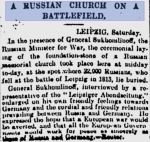I always assumed that was just "quick, we need a new doctor character. People liked McCoy, right? Just copy paste him being crusty and prejudiced against Spock to new doctor being crusty and prejudiced against Data" and it coming across as a bit inauthentic.
There was also the problem of a lot of character issues in the first two seasons, partly because they had too many characters in ill-defined roles; mainly Georgi (the blind guy flying the ship), Worf (what was his job again?), Tasha (not up to the task), and Wesley Sue Crusher, not to mention a bunch of chief engineers, none of whom lasted long enough to make any real impression. My honest feeling is that they didn't do much thinking about the background and it shows.
Things got sorted out a lot in seasons 2-3. Geordi becomes Chief Engineer, Worf becomes Head of Security, Yar gets killed (a shame, but Crosby was't up to the task), leaving Wesley as the only real poorly-conceived character. Maybe not fair on Wheaton, but he never really matured as an actor until it was too late to save the character - really, they'd have been better going with a Harry Kim-like character instead. However, the show largely focuses on Picard, Riker, Worf and Data - everyone else is pretty much secondary, as they're not interesting characters:
Interesting: Picard, Worf, Data
Middling: Riker, Geordi
Uninteresting: Troi, Crusher
Terrible: Wesley
Contrast this to DS9, where all of the characters were interesting and well-defended. But DS9 was an arc-show, so it could afford to set up the groundwork.


